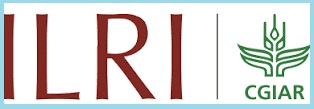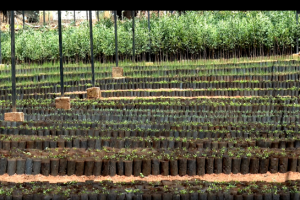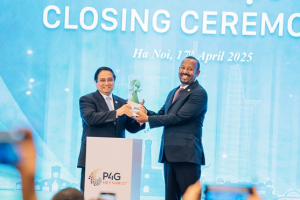
Livestock, a subsector of agriculture, is crucial for food security, sustainable development, biodiversity conservation, renewable energy production, weed management, and fuel.
It accounts for 34% of the global protein supply and essential micronutrients, especially in marginal areas. Livestock also contributes to renewable energy, reducing fossil fuel usage.
However, livestock production contributes to greenhouse gas emissions, with supply chains responsible for 14.5% of global anthropogenic emissions. Strategies to address climate change include improving feed production, managing enteric fermentation, manure handling, preventive veterinary practices, animal husbandry adjustments, and fostering social resilience.
The International Livestock Research Institute (ILRI) was established in 1994 to improve food security and alleviate poverty in developing nations. It supports small- and medium-scale livestock producers, improving incomes and nutritional status.
ILRI’s initiatives aim to enhance the adaptive capacity of livestock producers and mitigate health risks. In 2024, ILRI celebrated 50 years of sustainable livestock research in Nairobi. The institute is now focusing on its new corporate strategy for 2024-2030 to tackle development challenges.
With its headquarters located in Nairobi, Kenya, ILRI is co-hosted by the Ethiopian government through a Host Country Agreement that was signed on June 8, 1995, with the Ethiopian government and the Kenyan government on December 29, 1994.
ILRI’s work has been extremely beneficial to farmers, local organizations, and the Ministry of Agriculture. The research carried out here in Ethiopia has also been beneficial to the international community.
The ILRI campus in Addis has hosted 12 CGIAR research centers and numerous local and international collaborators, which has facilitated the formation of new alliances and the development of creative ideas for the benefit of people and the environment.
Dr. Fikru Regassa, State Minister, Ministry of Agriculture in Ethiopia, stated, “Your combined efforts are essential to Ethiopia’s agricultural development and the transformation of our food systems. I encourage ILRI and the CGIAR to continue aligning your efforts with our national goals.”
As one of the 15 CGIAR research centers, ILRI collaborates with a wide range of partners to develop innovative livestock solutions that have development impacts. The institute’s approach harnesses cutting-edge research not only to increase productivity but also to ensure that livestock systems contribute to climate resilience, environmental sustainability and inclusive development.
“Research is at the heart of progress. ILRI’s ability to combine global expertise with local understanding has made it an invaluable asset to Kenya. Through collaboration, we can unlock even more opportunities.
By working together, we may realize even more potential for agriculture overall as well as for the cattle industry. Kenya’s Vision 2030, which highlights the need for creative, market-driven approaches to development, is perfectly aligned with our relationship.
In his opening remarks at the festivities, Dr. Andrew Karanja, Cabinet Secretary, Ministry of Agriculture and Livestock Development in Kenya, stated, “Livestock remains a key pillar of this vision, and with ILRI’s support, we are confident in achieving sustainable growth and improved livelihoods for all Kenyans.”
“The Ministry of Livestock Development and Agriculture is dedicated to enhancing this collaboration. We acknowledge that the Agricultural Sector Transformation and Growth Strategy (ASTGS) and ILRI’s new 2024–2030 strategy are in line with our national priorities. We are especially inspired.”
ILRI’s emphasis on creativity, diversity, and adaptability especially inspires us as we work together to create food systems that are suitable for the future. Dr. Karanja went on to say.
In addition to nongovernmental organizations, commercial businesses, and local communities, ILRI collaborates with Kenyan ministries, research institutes, universities, and local government offices. Its primary Memorandum of Understanding is with the Kenyan Agriculture and Livestock Research Organization (KALRO). ILRI has assisted the dairy, poultry, and small ruminant industries over the years in collaboration with KALRO.
Livestock genetics, including the Tropical Poultry Genetic Solutions (TPGS), African Dairy Genetic Gains (ADGG), and biobanking Kenyan chicken genetic resources projects; addressing animal health issues through vaccine research (current work includes clinical trials to develop a subunit vaccine for contagious bovine pleuropneumonia in Kenya; research also includes restoration and sustaining rangelands and communities; developing climate-smart livestock-based systems through mitigation and adaptation; and sustainable intensification of crop-livestock systems in conjunction with One Health initiatives.
In order to increase output, our experts have created vaccinations against deadly illnesses including East Coast Fever and enhanced livestock breeds and resilience.
“Our researchers have developed vaccines for devastating diseases, including the East Coast Fever, and improved livestock breeds to enhance productivity and resilience.
“We have also developed high-yielding, disease-resistant improved livestock breeds that are tailored to thrive in climate-vulnerable regions, strengthening food security and productivity for millions of smallholder farmers worldwide. Our research has informed agricultural policies at global, regional and national levels, helping to reduce poverty and improve food security,” said Prof. Apollinaire Djikeng, Director General of ILRI.
The ILRI corporate strategy for 2024-2030—Unlocking Sustainable Livestock’s Potential through Research for Better Lives and a Better Planet—focuses on two mutually dependent objectives: co-designing and deploying sustainable livestock innovations, and leveraging scientific evidence for policy and investment decisions.
Targeted solutions, Policy and investment influence, Impactful partnerships and Resource growth were key messages. Tailoring interventions to specific livestock value chains and local contexts to ensure resilient and equitable transitions, providing evidence-based advice to policymakers and investors to foster sustainable development, strengthening collaborations with local, national, and global partners to co-create solutions that meet the needs of diverse communities and securing sustainable resources for research and innovation to maximize the impact on people’s lives.
By pursuing these objectives, ILRI aims to positively impact the lives of over 300 million people, addressing key development issues such as food security, poverty reduction, and climate change. This new strategy builds upon ILRI’s 50-year legacy of partnerships, groundbreaking research, and innovations that have significantly advanced livestock health, productivity, and environmental sustainability.
“ILRI’s new strategy is centered on ‘Unlocking sustainable livestock’s potential through research for better lives and a better planet’. This, along with the new ILRI research and innovation strategy, will inspire new directions and allow our research to benefit hundreds of millions of more people, by deploying scalable solutions while influencing policies and investments to achieve significant impacts,” Appolinaire added.
Through partnerships with governments, NGOs, the private sector, and local communities, ILRI’s work has empowered farmers, livestock keepers, and communities to build more resilient food systems, even in the face of climate change and other global challenges.
As the world faces complex and interrelated development challenges, ILRI remains committed to fostering partnerships that support the adoption of sustainable livestock solutions. The institute’s research continues to drive improvements in the productivity, resilience, and sustainability of livestock systems, particularly in Africa and Asia, where demand for animal products is growing rapidly.
As the institute embarks on its next 50 years, it calls on players from all sectors to join in supporting the transformation of livestock systems for a more sustainable, equitable, and resilient world.
The International Livestock Research Institute (ILRI) works to improve food and nutritional security and reduce poverty in developing countries through research for efficient, safe, and sustainable use of livestock. ILRI is a member of the CGIAR System Organization, a global research partnership for a food-secure future.
BY GRIMACHEW GASHAW
ETHIOPIAN HERALD TUESDAY 3 DECEMBER 2024





